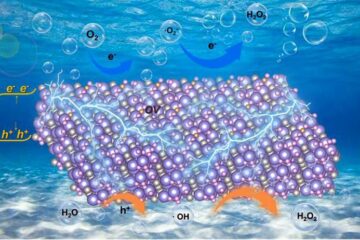Direct link found between chronic inflammation, colon cancer

Investigators in the A.B. Hancock Jr. Memorial Research Center at Vanderbilt have identified a type of DNA damage caused by chronic inflammation as a potential risk factor for colorectal cancer.
The findings, published this week in the early online edition of the website of the Proceedings of the National Academy of Science (www.pnas.org), shed more light on the role that inflammation might play in cancer and suggests that measurement of this type of DNA damage might be useful in assessment and management of a patient’s colorectal cancer risk.
“A number of studies have implicated chronic inflammation in the development of cancers, but the specific way that occurs is not clear,” said Dr. Lawrence J. Marnett, Ph.D., director of the Hancock Research Center and the Vanderbilt Institute of Chemical Biology.
“These studies suggest a direct link between oxidative stress, like that seen in chronic inflammation, and genetic mutations that cause human disease.”
The work reported in PNAS builds on years of research at Vanderbilt into how overproduction of the inflammation-causing enzyme cyclooxygenase-2 (COX-2) may contribute to cancer – and conversely, how aspirin-like drugs that block COX-2 might help treat or prevent cancer.
“When the body experiences oxidative stress, molecules called free radicals are produced, and these free radicals can damage cells – the cell membrane and the DNA,” Marnett said.
The researchers examined a type of DNA damage caused by malondialdehye (MDA), a product of COX-2. The question they wanted to answer was whether the DNA damage would stop with the damaged cell or whether it would cause genetic abnormalities, or mutations, which would be replicated in future cell lines.
They built a DNA molecule that incorporated the MDA-caused damage and inserted that into mammalian kidney cells. After the cells divided, the DNA was recovered from the new cells and examined for mutations.
The researchers found that, indeed, the DNA damage had resulted in a specific type of genetic change called a “frameshift mutation.” These mutations delete a small portion of DNA, effectively throwing off the “reading frame” through which the genes’ instructions are interpreted and resulting in a protein that doesn’t do what it is supposed to do.
Interestingly, these types of mutations are common in an inherited form of colon cancer, Hereditary Non-Polyposis Colon Cancer (HPNCC). This work suggests that these mutations, caused by inflammation and other oxidative stress, might also contribute to colorectal cancer.
Co-investigators in the research include Laurie A. VanderVeen, Muhammed F. Hashim and Yu Shyr, representing the Hancock Research Center, the VICB, the Vanderbilt-Ingram Cancer Center, the Vanderbilt Center for Molecular Toxicology and the Vanderbilt School of Medicine departments of Biochemistry and Preventive Medicine.
Media Contact
More Information:
http://www.mc.vanderbilt.edu/reporterAll latest news from the category: Health and Medicine
This subject area encompasses research and studies in the field of human medicine.
Among the wide-ranging list of topics covered here are anesthesiology, anatomy, surgery, human genetics, hygiene and environmental medicine, internal medicine, neurology, pharmacology, physiology, urology and dental medicine.
Newest articles

New SPECT/CT technique shows impressive biomarker identification
…offers increased access for prostate cancer patients. A novel SPECT/CT acquisition method can accurately detect radiopharmaceutical biodistribution in a convenient manner for prostate cancer patients, opening the door for more…

How 3D printers can give robots a soft touch
Soft skin coverings and touch sensors have emerged as a promising feature for robots that are both safer and more intuitive for human interaction, but they are expensive and difficult…

Oxygen vacancies mediated ultrathin Bi4O5Br2 nanosheets
… as efficient piezocatalyst for synthesis of H2O2 from pure water. As an important chemical raw material, hydrogen peroxide (H2O2) is widely applied in various aspects of industry and life….





















